Our Travel blog
|
We left Cheltenham and arrived in Colchester in time to park up and walk into town to take care of some business. Its peculiar that for all its familiarity I felt no sense of 'coming home.' I first came to Colchester as a shy and awkward student nurse, squeezed into a room in the nurses home in Hollymead Close. I spent three years there training, more in town working as a qualified nurse, took my driving test there, was a school governor at a local primary school, worked in social housing in the town centre, brought my first house, got married, raised a family, got divorced, attended many functions, events and concerts, arranged gigs, used our living room as a concert venue, made many lasting friends and generally worked, slept and played in the town for 30 odd years. Alison moved in for the last two and from that point life took a different direction. Although we're very fortunate to have lived there, returning has confirmed that the time was right to move on. What we value from our time in the town we still have; the friendships, the family and the memories.
Today, 21 June, also marked significant life events for us. Firstly, two years previously, outside the Sacre Cour in Paris, Alison rashly agreed to be my wife. To celebrate we were seeing Adrian Nation play at the Mercury theatre. Adrian played at one of our house gigs in Queensland Drive in Colchester, played at our wedding and has generally brightened our lives with his music, as well as being a charming and erudite bloke who makes a mean cheesecake. We were attending with friends who rather foolishly agreed that we could park Mavis on their drive and then went the extra mile and invited us to stay in a proper bed, treated us to a delicious home made curry and generally spoilt us. We had a great time. I was going to review Adrian's gig here but one of our companions for the evening did a far better job than I could, so do please read it here. jukeboxfolkreview.blogspot.com On Wednesday we headed for London to mark the second key life event. Matt's 21st birthday was on 21st June. We headed into London and enjoyed a fine meal with him before wrecking his flat by trying out his new drone with varying degrees of success. Alison soon got the hang of it but my attempts ranged from useless to very useless. I've never been the most coordinated of people and this rather underlined it. I played soccer for a youth club many many years ago. Looking back now I suspect it was to make up the numbers. Somehow football combined both my inherent lack of coordination and my inability to do more than one thing at a time. On one notable occasion I made a fabulous run from my own 18yd box, effortlessly swerving passed startled opposition players and, finding myself yards from their goal, I raised my right foot to shoot, only then realising that the ball wasn't there. In fact I'd left it just outside the 18yd box and it had since enjoyed life in the company of the opposition and was now nestled safely in the net at the back of our goal. After a while I progressed from being awful at football to simply adequate, generally the level that guaranteed a starting place in Saxmundham Youth Club B team. While my feet could generally be relied upon to work together or at least chop down a forward (this being in the days when anything short of a firearm was considered okay for a defender to deploy) I never got the hang of heading the ball. In the unlikely event that my head made contact with the ball I'd stumble about in a state of mild concussion admiring the pretty lights. A football that bounced off my team mates heads like a helium balloon would strike me like a bowling ball fired from a cannon. Some primal survival instinct forced my eyes to close at the crucial moment so the ball could strike my back, an arm or a startled referee. Our goal keeper got so used to my ineptitude in the air that when we conceded a corner he'd tackle me first incase the ball should strike me and divert passed him into our goal. Back in Matt's flat I tried getting the drone to hover at eye level, and thus sent it under his sofa from where it reappeared in a spray of dust and loose change to ricochet off the wall and a plant, coming to rest in Alison's hair. Twenty minutes later, having solemnly sworn never to touch it again we extracted the last rota blade from Alison's head and settled instead for birthday cake and coffee; before we left Matt to pick up broken crockery, wash bits of cactus off the walls and clean chocolate cake up from where I'd been sitting and returned to the warm bosom of friendly drone free hospitality in Colchester. We awoke on Thursday to rain, which thankfully didn't last long, and headed to pick up some post from our old house. The new owners are in the middle of extensive alterations but couldn't have been more hospitable. It was odd and strangely reassuring to find the house so altered. At once the same and different. It confirmed to us that we've left Colchester for good, but that we'd parted on good terms. Our journey today took us to Cambridge, a chance to catch up with Alison's parents and son and also to vote in the referendum to decide once and for all whether we muck up the country ourselves or do so with assistance of the EU. Alison's folks were as hospitable as ever, we enjoyed a sumptuous meal with Dom in attendance too and settled for the evening in the warm glow of family. Retiring to Mavis, with the rain drumming out a tattoo on the roof, we fell into a fitful, restless sleep.
1 Comment
We left the tranquillity of the Peaks with the mix of excitement and trepidation that always marks the start of another festival; new people, new surroundings and new jobs to do. The journey wasn't that long and we soon pulled into the car park at what appeared to be a village hall sandwiched between a canal, a road and fields. The hall’s sports field, complete with broken goal post, was littered with tents and vans of the sort favoured by a certain type of festival goer and a burger van sat in the car park, so we had a good idea this was the right place for the Sonic Rock Solstice Festival.
We made ourselves known to a group sitting around a gazebo at the entrance to the field and were directed to our contact who bade us welcome, introduced us formally to the good folk at the gazebo and then promptly departed on an errand of his own. Feeling slightly uncomfortable and at a loose end we got to know our companions for the weekend who hailed from all around the North West and Midlands and together make up the Salutation Motorcycle Club (MCC). Here's what they say about themselves on their website. "Salutation MCC was formed in February 1991, by a dozen or so likeminded bikers, who more often than not drank in, you've guessed it, the 'Salutation Inn' in Ambleside, Cumbria. Although the club name comes largely from that drinking hole, part of it derives from the Latin 'salutare'. Salutation. n. an act, phrase, gesture, etc., that serves as a greeting C14:latin salutatio from salutare to greet The ethos of the club is simple....To enjoy good company and to live the lifestyle without any attitudes." If we'd been told in advance we'd be with a motorcycle club all weekend we would have felt nervous, but parachuted blind into their company as we were, we didn't have time for worries and they couldn't have been more welcoming and hospitable. Friday afternoon was odd because we really felt we should be doing something other than sitting around drinking beer. We found a few odd tasks and generally made ourselves useful but by evening we succumbed to the charms of food, beer and a couple of bands before a relatively early night. Saturday morning found Ray cleaning toilets (someone has too and it was small payment for the free entry and seemingly endless supply of beer) and Alison helping on the gate. We took a walk to the village shop and then generally bummed about watching bands, doing odd jobs and generally feeling like we should be busy. Come the evening though we felt really settled and spent a raucous time around the camp fire with the Salutations members and a few others. I'm not quite sure how but at one point we had a 5 piece kazoo orchestra going, three bikers, Alison and me. Frankly I'm surprised and a little hurt that we weren’t booked for a stage slot on the Sunday, but such is life. Sunday saw many of the MCC heading off to prepare for their day jobs leaving the club president Naz and us in sole charge. He was great company and, joined by a chap we called Orkney Pete (because he's from Orkney and his name was Pete) we sat around chatting, answering occasional queries from punters and generally shooting the breeze until the rain started mid-afternoon. We packed the gazebo away and, after dinner, headed into the venue to watch the last two bands. As per our other festival entries we are not reviewing bands and we saw few for any sufficient length of time to comment but a few mentions in dispatches go to:
Monday morning brought with it a healthy dose of reality. The rain had ben non-stop overnight, the field boggy and half empty. We trudged around occupying ourselves with small tasks but really it was all done, people with heavy eyes and drooping shoulders were packing away wet tents and preparing to return to normality. The entrance to the camping field oozed with thick mud squelching its way through the remains of the straw we'd put down. Nik Turner wandered through in an army tunic, immaculate white jeans and polished brogues; somehow I don't think the real world applies to him. Finally we must mention Hope, the world’s worst guide dog, who while leading her owner to his taxi caught a whiff of the burger van and led him off at a brisk pace towards it, hoping to catch a stray burger no doubt. A quick intervention by a bystander set her back on course where she promptly made another 45 degree turn to greet Alison like a long lost friend. Our last view of her was sitting on her owners lap licking the taxi driver’s face. Farewells exchanged, we left for a brief jaunt down the M5 to Cheltenham and our campsite at the racecourse. It was actually in one of the enclosures, so we pitched under the shadow of the Desert Orchid Stand on the kind of slope that, even with levelling blocks, would make half your dinner roll off the plate and into your lap. It's why we now choose mushy peas over the garden variety. The slope formed the south west side of a broad valley, the expanse of the racecourse below us, and in the distance gentle wooded hills, softened over millennia but still with patches of exposed rock peeking through; reminders of the forces that created this tranquil spot. Through the trees we could see the sandstone village Southam poking through, the stone glowing in the evening sun. We spent the afternoon catching up on laundry and ‘housework’, installed a stereo system so that we can play records properly and generally spruced things up a bit. I managed to negotiate the showers without calling for assistance (always a bonus) and we went to bed tired but pleased with the day. 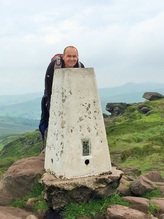 We set out from the site in the late morning to climb The Roaches. Well, climb is a bit of an exaggeration, we intended to follow the footpath up where only thousands have been before, but the incline was steep and rugged and our attire was of the sort favoured by serious hikers and had lots of pockets; I may even have attached a small carabiner. It felt to us like an expedition. We started walking in steady moderate rain, of the sort that quickly penetrates everything. Turning off the main road just before Upper Hulme we followed a stream down to a footbridge of worn stone then up through dank long grass to join a minor road from which our route branched off a mile so so later. We took to open access land and up the first ascent of the day, Hen Cloud. Halfway up the steep path we met notices alerting walkers to keep to the path and not venture left because of nesting Peregrine Falcons. Intrigued, we elected to head back down and investigate the shed where Staffordshire Wildlife Trust volunteers stood vigil over the nest, per chance to discover more. While Alison was viewing the falcon through their powerful scope I was being talked at about map reading. I love maps so at first I thought I had met a kindred spirit as we discussed the merits of OS mapping, but his devotion led him to regale me with tales of him finding lost people, guiding parties to safety from certain doom, or at least from being mildly inconvenienced, and how he'd print his maps and laminate them...at least I think that's correct. Frankly I tuned out and let him carry on while I fantasised about chopping him up and feeding him to the falcons, wondered how England would get on in the football and then composed this blog entry in my head while he droned on. I silently hoped he wasn't about to set an exam to test my knowledge of his orienteering prowess. Alison eventually tired of bird spotting and roused me from my semi comatose state and we went on our way. I chanced a look back and my erstwhile OS superhero was gesticulating to thin air, probably pointing out where he had saved a party of nuns from plunging into a disused mine shaft because they were using the wrong scale OS or some-such inflated nonsense. I'm not sure he realised I'd left and was now cheerfully half a mile away, making good headway up the path towards the lower tier of The Roaches. The path ran below the jagged edge of The Roaches, beloved of rock climbers, and weaved along the top of a delightful wooded area, heavily populated with pines that lent it an Alpine air. The feeling of being able to reach out and touch the top of a mighty pine tree was uncanny as we walked on, closer now to the edge as the path narrowed. The rain had abated and everything was fresh and green as we rounded an outcrop and met the rock steps leading to the upper tier. From the top of the steps we could see Tittesworth reservoir, grey and murky at first then bright and silver among the greenery as the sun came out in the valley. Above the reservoir Gun Hill was half illuminated by sunlight struggling through low grey cloud, the patchwork of irregular fields split by deep green hedges, in contrast to the dry stone walls around us. We discovered a rough seat hewn into a rock, poised precariously above a sheer drop and above it a plaque, carved into the rock, commemorating the visit to this very spot of the Prince and Princess of Teck on Aug 23rd 1872. We had no idea who the heck the Prince and Princess of Teck were but subsequent research revealed that the Prince was a minor German aristocrat and the Princess was Mary Adelaide, cousin of Queen Victoria, who was still unmarried at the ripe old age the age of 30. Being the way of things a match was sought with someone of suitable royal blood. Reports also mention her lack of income, advanced age and rather uncharitably 'lack of attractiveness' as contributing factors, but somehow they unearthed Prince Francis, Prince of Teck in Württemberg. The Prince was of lower rank than Mary and had no succession rights to the throne of Württemberg but nevertheless they were married on 12 June 1866 in Surrey. In 1883 they had to flee England to escape debts, but on their return in 1885 Mary began devoting her life to the twin causes of charity and getting her daughter married into royalty. She finally managed to marry Princess Victoria Mary of Teck (known as May) to Prince George, Duke of York, who was to become George V. It was her second attempt, the first was to his brother The Duke of Clarence who inconveniently died six weeks after the betrothal. So, there you go. Pictures of the time show a jolly party crowded onto the rocks to take in the views. Today though we appeared to have them to ourselves as we took the ridge path along the top and made our way along sandy paths, scrambled over rocks worn smooth and shiny by countless walking boots, passed the lonely dark waters of the tiny Doxy Pool, through dark peaty mud and on to the trig point that marked the summit of our walk, at 505 somethings. Metres I believe. I had the strange experience of attending primary school when the country adopted decimalisation, along with selective bits of the metric system. In theory this should make me adept at understanding both imperial and metric measurements but in fact I understand neither. Alison kindly translates things like weather forecasts for me since having once told me the temperature would be around 55 I presented myself in shorts and tee shirt to be met by a familiar look of resignation and was gently escorted upstairs to put on clothing more suitable for 55 Fahrenheit, hat gloves scarf etcetea, rather than the 55 Celsius I'd prepared for. Anyway, from our lofty position at 505 gallons below sea level or something, we could survey the panorama around us. The broad valleys, low hills creeping up to purple and golden moors, verdant wooded hills towards Flash, England's highest village, to our North, the arrow straight Roman road of the A53 cutting between the open farmland and moors to the East and more rugged terrain crested by the Roaches we were standing upon. Below us were the Ramshaw Rocks, looking as if they had been swept upwards in the manner of sand as the tide recedes, left to dry as exposed and windswept monuments to the seismic events that formed them. From here we descended rapidly to stony outcrops and an alien landscape of peculiar weather sculpted rocks at Bearstone Rock. We've no idea which was Bearstone Rock because the area had many that could qualify as local landmarks. The views back into the Five Clouds valley that sits to the West under The Roaches stretched all the way to the Tittesworth Reservoir and the village of Meerbrook, hidden except for the church spire and chimneys poking out from the trees. The sun continued to tease us by shining on the hills around and away from the wind we stripped off layers as the air became still and muggy under the cloud. Walking down the last of the path we joined a minor road and set off back under the cliff face of Roach End, beneath the rocks and then dropped down a steep side road to Roche Grange. We were going to cut through on footpaths to Meerbrook but they were mostly overgrown and uninviting, especially since the sun was now out, making the still air buzz with insects that stuck to our skin. We eventually found a suitable path and struck off through fields of open meadows resplendent in vivid yellow buttercups and flanked by willows, hawthorn hedges and lone trees. About to enter one such field a frisky foal spied us, whinnied and darted over on spindly legs. It seemed delighted to have human company and bounced about like a dog eager for a game. It's mother looked up and with slight shrug of resignation returned to grazing, I suspect secretly pleased to have him off her hands for a while. Lovely though it was to be greeted so enthusiastically he worried us in his playfulness. We'd made progress across the field when he galloped up from behind, touched my shoulder and turned away with a flick of hooves and a deep, resonant fart. A nearby cow gave us a 'kids, what can you do?' look and resumed chomping her way through the long grass. We hurried on and fortunately he lost interest as we descended to cross a stream flowing towards the river Churnet. We joined the Staffordshire Moorlands Walks way-marked route which led us through another field of thankfully more placid horses and into Meerbrook and the snug Lazy Trout pub where we took liquid refreshments. The final section of our walk took us along the road, crossing the reservoir and headed uphill, dodging traffic until we met the A53 and the short walk back to the site. In all we covered around 12 miles of undulating countryside and rewarded ourselves with cups of tea, prolonged warm showers and a hearty meal at the nearby pub and restaurant. A fine days walking in a part of the world that we are gradually adopting as our own. After arriving back late last night from London we were up and away this morning in good time, excited to be spending a couple of nights in The Peak District. We hold a special place in out hearts for this beautiful part of Britain. It's where I took refuge when I needed a break from other pressures in an earlier lifetime, where we've visited since meeting for weekends away and where we honeymooned.
The Peak District was founded in 1951 as the first of Britain’s 15 national parks. It covers an area of 555 sq miles and sits plumb in the middle of England, 20 million people live within one hours journey of the park, and its resident population of around 38,000 people is swollen by 10 million visitors a year. Its an area of great diversity, dark moorland, dramatic limestone edges, lush farmland, forests, 55 reservoirs and hills. They are not really peaks, that term probably comes from Pecsaetan, an Anglo-Saxon tribe who settled the area. The highest point is Kinder Scout at a relatively modest 2086 feet. Walkers and cyclists are a common sight but a significant number of the visitors don't venture more than a few yards from their car or coach, preferring to take a few quick snaps to bore the grandchildren with then retire to a tea room to complain about the price of the cream tea they've just purchased and catch up on gossip. Sometimes this is because of their age and restrictions in mobility, and their are some fine views and landscapes to enjoy from a coach window but if you can then you need to walk away from the towns to really experience all that the Peak District has to offer. But before we could get there we had to negotiate Bar Hill post office and Tescos. This was where Alison lived for years and as you'll know by now Alison is on a mission to befriend every citizen of earth so in Bar Hill it was inevitable we'd bump into her old friends and acquaintances. Being experienced at this now we'd allowed ourselves plenty of time and exchanged pleasantries with a host of good folk in a manner we hope wasn't too rushed before heading off. Turning North out of Leek our hearts lightened as we hit the southern end of The Peaks and the rolling hills became studded with the dramatic outcrops of The Roaches, a gritstone escarpment made up from the Lower and Upper tier Roaches, Hen Cloud and Ramshaw Rocks. It is a haven for walkers and climbers. We are planning to walk there tomorrow so we'll leave further descriptions for now, but we'll tease you with talk of Peregrine Falcons and Wallabies. For today we pulled into Blackshaw Moor Caravan Club site, which sits on the site of a WW2 US anti-aircraft battalion and then from 1946 it was a re-settlement camp for camp for Polish soldiers who couldn't return to their homeland. The site wardens are very sensitive to the memory of the camp and have erected a plaque commemorating the camp and service men who lived here, and there are little notice boards with picture dotted around. Its all very well done and the site is most becoming, with little private glades around a central site and very generous pitches. As Ray was at a meeting I had the day to myself so decided to indulge my inner nerd and go to The British Museum. I've had a long held desire to immerse myself in the Egyptian exhibits and see the treasures of Sutton Hoo but I’ve struggled to find someone to go with. I am one of those really annoying people who wants to read every notice and gaze at each exhibit to try and form a picture in my head of what it was like to live in the days gone by represented by the artefacts on display. I have an endless fascination with people and love knowing their stories; their motivations and desires, their understanding of the world around them. A colleague of mine once pointed out fondly that if I don't know a person's story I invent one for them. She's right, and once she pointed it out we'd make great sport of creating narratives for people. Anyway, you can imagine why no one ever wants to accompany me to museums, especially if I get into conversation with one of the attendants. Whole days have been lost while I work my way from attendant to attendant and end up being discreetly nudged towards the exit at closing time to find my long suffering companion having drunk their own body weight in coffee and laden with ill-chosen purchases from the gift shop. Best then to go on my own.
Once inside the museum I purchased a guidebook and a coffee and, armed with sticky notes and highlighters, settled down to plan a mini tour for myself. I spent the morning buried in Ancient Egypt, dipping a toe into Ancient Greece and Assyria. I dabbled in the Enlightenment gallery and was emotionally overwhelmed by stories of birth, death, marriage and hunting rituals and beliefs from around the world in the Living and Dying themed exhibition in the Wellcome Trust Gallery. I stopped for a late lunch where I was subjected to a heated telephone conversation the American at the next table was having with his bank back in the States. I couldn't help but listen as the man became more and more irate and frustrated, growing redder in the face with each loudly proclaimed assertion that no, his bank card had not been stolen, the unusual activity carried out in London was because he was using said bank card in London, and the bank stopping his card meant his vacation was now ruined. I did have every sympathy with his predicament (we've all been on the end of similar conversations I'm sure) but if I heard him yell one more time that he was sitting in the "freaking British Museum" he was going to get an ancient Egyptian amulet shoved where the "freaking" sun don't shine. I finished my lunch quickly and left him to it. I didn't have much time left before I was due to meet up with Ray, Matt and Louise so I rushed to the Sutton Hoo exhibit and rounded off the day with a Babylonian map of the world from around 700BC and an Assyrian tablet from the 7th Century BC describing how the Assyrian gods sent a flood to destroy mankind. Quite fascinating. I had a wonderful and enlightening day at the museum and trotted off happily to meet Ray, Matt and Louise in Trafalgar Square for an enjoyable drink, Mexican meal and a much needed catch up. Today we have a rare treat; a night in a London hotel, a birthday present from one of Ray's children and his girlfriend. We booked tonight because it coincides with a concert we are attending at The Royal Festival Hall and Ray is at a meeting tomorrow in the city.
We said our farewells to Alison's parents and thanked them for their hospitality. They've been particularly attentive this time as they are trying to boost their rating on Trip Adviser since our last visit. We settled on 4.7 this time. Thus we hope they are not disappointed but it still gives them something to aim for when we visit again; we'd hate for them to get complacent. Having parked Mavis for the night we headed to the station. We needed to get a new Two-Together railcard. This should have been simple but for reasons best known to themselves Cambridge Station have elected to site their photo-booth on the platform. For a while I struggled with the existential conundrum of getting a photo for the railcard to enable me to get the ticket that would allow me to get onto the platform to get to the photo booth to enable me to get the photo I needed to get the railcard to get the ticket to get onto the platform...etc. Fortunately Alison is more direct and chatted amiably to the Transport Policeman, explaining that we needed new photos for a replacement rail card because her name has changed and anyway the ones we have make us look like a Crimewatch photofit. Mine certainly looked like I was featured on America's Most Wanted. Happily I look a bit less like a serial killer in the new one. We arrived at the hotel in London's Docklands 90 minutes before the 3pm check in. The lady on the desk couldn't have been more helpful; she stored our bags, upgraded our room to one with a bath (gratis) and directed us to a nearby Italian restaurant armed with a blank hotel key card to secure a 10% discount. We knew it was a handy arrangement twixt hotel and restaurant but it worked for us; the food was delicious and reasonably priced, especially for London, and the service attentive. We waddled back to the hotel to a large room with crisp white sheets on a king size bed and a bath that we took turns to soak in. We headed into the city centre and made our way to The Royal Festival Hall, which appears to have been renamed The South Bank Centre, along with all the other theatres and recital rooms that make up this concrete jungle on the banks of the Thames. It was built in 1951 for the Festival of Britain and according to their website it's the largest single run arts centre in the world. I'm not completely sure whether this is an achievement to be proud of or not. It reminds me of cricket commentators who proclaim meaningless statistics like "That's only the 3rd time a medium paced bowler has delivered an off spinner on a Wednesday at Trent Bridge from the sewage works end against the wind since Bertie Fudge-Trollop in 1431. That reminds me, Mrs Verity Panty has sent us a chocolate cake, and very fine it is too." And so on and so forth. So, back to the South Bank Centre. It took us a while to find our way in, since the ground floor of The Festival Hall is given over to a variety of brash chain restaurants. Eventually we followed some grim stairs up a dank passageway between neon eateries and found our way in. This was only a temporary victory as inside its vast lobby things got seriously confusing. It may be my age (I'm excusing Alison who is tender in years you understand), but why is it so difficult to navigate a concert hall whose one function is to usher you seamlessly to your seats? We eventually found the booth to pick up our tickets and were directed to a lift that was full with three people. Why install a lift so small for a building that seats 2500 people? We opted to walk up to level 6, and found ourselves on the 'yellow' side - according to our tickets we should have been on the 'blue' side. This appeared to be their one concession to navigation as it divides the auditorium down the middle so you enter via the colour that matches the side your seats are in. Well, we did, but most people seemed as confused as us - maybe that says something about I Am Kloots core audience? Finding our way we then had to wait for a break between songs to enter, where The Plumdores were well into their bluesy support set. If you like three piece rootsy bluesy rock n' roll you'll probably like them. Guy Garvey from Elbow came on to join in while Alison went in search of water and a rest from the rather harsh sound. I Am Kloot suffered no such sound problems and were joined onstage by the brass and strings of the Millennium Ensemble for a rendition of their Mercury award nominated Sky at Night album plus rousing encores. A fabulous evening made all the better by the warm glow we felt in having thwarted the South Bank Centre's attempts to confuddle us. 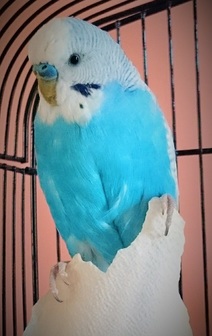 We’ve spent a few days holed up in Cambridge for family matters and a bit of a post festival recharge. I mention this as, searching for something else in the belongings we have stored here, I chanced upon a memory stick and found some notes I’d written a couple of years ago. As there’s not much to report apart from Alison's friends and family being wonderful company and Chuckie the budgie keeping us amused I thought this was a golden opportunity to shoehorn it into this blog. But first some background: A couple of years ago we did a bit of a compressed tour of the UK, starting in England, hitting Scotland, then Wales, all in a week. We imposed ourselves upon Alison’s friends in each location and they were all saintly and generous with their time. Although I had met them all before it had only been briefly at functions and I was a little rusty on matching faces to names. Alison’s promised set of revision flash cards never materialised so I was left cheerfully greeting lovely warm people and subtly interrogating them to find their place in Alison’s extended family of colleagues, ex-colleagues, folks she knows from church and people she met once in Tesco’s and is now God parent to their children. In Edinburgh, I was armed with the names of our hosts and a mental picture of their faces. We were greeted at the door of a charming house by a wonderful gentleman who bade us welcome, made tea and served biscuits, showed us around and, as Alison seemed relaxed and he was most amiable, I assumed we were in the correct house and set to work assembling clues to their relationship to one another. His wife returned from work, hugs and felicitations were exchanged and we sat down to a fine meal and cosy chat around the fire. We eventually retired and lay in bed reading when I had to admit defeat, leading to the following conversation: Alison: “What a lovely evening” Me: “Delightful, charming people…Alison darling?” Alison: “Yes dear?” Me:”Err, who exactly are these delightful charming people?” Once explained, mental pictures rearranged accordingly, and secretly hoping I was never tested on the finer details, we had a wonderful time with them. It turned out to be much more illuminating and moving for me than I’d ever have anticipated. What follows I’ve written up from notes I made at the time. Chatting around the fire one evening the subject turned to the traits we have in common with our children. I casually mentioned the poor handwriting, spelling and unusual writing stance I share with my two adults sons, making light of it as I always do. After some gentle questioning I was referred to a website about Dysgraphia. It’s an interesting and sobering read; one that makes sense of experiences from my childhood. Here is a handy definition: “Dysgraphia is a neurological disorder, characterised by the inability to write properly. Dysgraphia in fact refers specifically to the inability to perform operations in handwriting. It could be described as an extreme difficulty with fine-motor skills…It is very important to recognise dysgraphia as soon as possible, before it impacts on a child’s self-esteem. “ I’m not making a self-diagnosis. I have no idea if I or my children have it. It seems pointless, except maybe out of academic interest, to find out now. I’ve always tried to park my school days as something I had to endure, a kind of extended initiation into adulthood that I’ll thankfully never have to repeat. My education was characterised by under-achievement. By the time I got to secondary school I’d found I could fade into the background and drift around largely undisturbed by the powers that be. In spite of that, since leaving formal education I’ve done okay. I found that you could work for a living and learn what you needed to know for the job, and not, for example, about ox-bow lakes, the periodic table or bloody algebra. My children did well at school but had the constant spectre of the handwriting and spelling police looming over them too. We have all become experts at coping. Stoicism could be our middle name – if we could ever be relied upon to spell it correctly that is. But some experiences do linger and lying awake in the dim light of an early Edinburgh morning I reflected on what I’d read and my battles with low self-esteem and depression.
The biggest benefit for me, and I guess for my children too, is the computer. Having no need to write longhand has been a revelation. I've moved from avoiding writing to actually enjoying it. Maybe some of my grammatical quirks persist and I make more use of the spell checker than most. In fact for me it is close to the greatest invention ever. Just behind the record player and ahead of chocolate. (Close though, don't despair chocolate, we're still friends). I also want to pause here to pay tribute to Alison who proof reads and improves everything I write. (Except this paragraph because if I let her see it she would remove it out of modesty). And I do mean everything I write; I’ve found shopping lists that have been gently corrected. She has also found it within her considerable resources to provide me with more nurturing and encouragement in just a few years than formal education ever did, which was supposed to be their job. I’m not blaming teachers. Education is characterised by political interference and the dictates of fashions and trends that they have to conform to. I do though wish some teachers had remembered why they were in the profession and taken a few minutes to think about children as people rather than slightly damp sacks of meat to be processed, squeezed into a nylon uniform and stuck behind a checkout until they retire. Occasionally I still ponder the 'what if' questions. Maybe with the right support I'd have made more of my abilities and collected some decent qualifications at school, perhaps made it to university. But with hindsight I'm not sure I'd have wanted a different path to the one I chose. What I would have changed is the attitude of my teachers and parents, the humiliations and the stress of not understanding why I couldn't do what was required and, assuming, indeed being told, that the fault was mine. Dysgraphia is just one of many conditions that can go unrecognised and children and students with them often don't stand much chance of getting the support they require. This needs to change but I fear it won’t in our education factories where conformity, obedience and exam success are prized over individuality, the arts and personality. Again, that’s not generally the teachers fault and I could name one primary school teacher who did more for my two offspring than she’d ever get credit for by the politicians and authorities who measure success by grades and not genuine learning and growth. To reiterate I wrote this without a diagnosis and don’t claim any specific condition but if you are interested in knowing more you can try www.dysgraphia.org.uk. And on that slightly glum note we'll get back to writing about our travels, Alison's ability to make friends in the unlikeliest of places and my struggles with the skills needed for basic survival, starting tomorrow when we hit London. 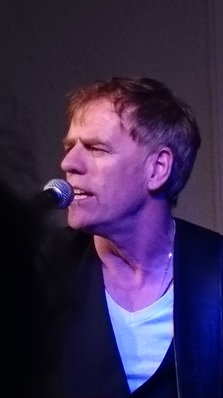 We awoke to heavy mist, or more accurately in low cloud. It was mercifully dry and we went about our daily ablutions. By now you are probably familiar with my struggles to grasp the workings of unfamiliar showers and today, although the shower cooperated, the sink had a plug of extraordinary complexity. I spent 10 minutes trying to get it to stay closed, attempting to shave as the water gurgled away until I lent on it with my full weight and it popped into the hole. I then spent 20 more precious minutes trying to empty the sink until I levered the plug out to the sound of a loud and probably expensive snap. It was a classic case of over-engineering. If ever a sanitary fitting was fit for purpose, from pre-historic times onward, it is the humble plug. Here's a definition: "Typically plugs are made from a soft material, such as rubber, or have a soft outer rim, so that they can be fitted to holes slightly smaller than their diameter; this ensures a tight seal." See, it's not difficult is it? All I want is for the water to remain in situ until I've finished with it. Why do they have to be made to pop up, pivot, lever, spring and otherwise bugger about? If you are a Master Pluggist, or whatever the noun is for one whose job is to design plugs, give up, retrain as a ballet dancer or design a better moustache trimmer. There really is no need to tinker with something that already works without your continued bloody interference. Of course Alison, bless her, suffers no such indignities and calmly takes all manner of sanitary ware in her stride. This morning she greeted my face, half of which was smooth and shiny and half raw stubble, with the special look of pity and resignation that she reserves for my frequent struggles with the unfamiliar. She guided me gently to the bathroom, mopped off the suds, water and last nights BBQ sauce, calmly suggested my underpants might be better suited inside my trousers and left me changing while she went back to the toilet block to mop up after me, collecting the items I'd dropped along the way and probably leaving a little note of apology for the owners. And so, correctly attired we went into Biddulph. We were to attend a gig by Martyn Joseph, a particular favourite of ours who we first saw together at the Cambridge Junction on our very first date. We've seen him every year since and tonight we'd arranged to see him play at the Biddulph Arms as it coincided with our itinerary. The pub was staffed by friendly folk who moved cars to allow Mavis ample room to park, fed us with extraordinarily good food at cheap prices (£5:00 for a large vegetable pie with chips and peas) and generally looked after us. We wandered into the town but after the friendliness of the pub it seemed rather run down and morose so we went back, grabbed a drink and sat in the upstairs venue chatting to charming locals who bade us join their frequent rambles in the nearby Peak District when we are next visiting. The room was intimate, it probably held 80 - 100 people, and was sold out. Martyn excels in these small venues and from the moment he picked up his guitar to the last dying chord he held every single person in the palm of his hand. We laughed, sang along, earning Alison compliments and me frowns, fought back tears for the dispossessed, held our collective breaths in awed silence and erupted into furious and sustained applause. Post gig we met him briefly to get a CD signed and say thank you and then tried to get away as we had an overnight drive to Cambridge ahead. Annoyingly some daft selfish sod had squeezed their car into a space behind Mavis, presumably sideways so tight was the fit. We were just preparing to barge into the pub and demand the prick of an owner move their infernal blooming car forthwith when it beeped to signal it was unlocked and Martyn appeared holding the keys. Well, we complimented him on his parking, what a clever idea it was to take up that space, no it's no trouble at all, we've all the time in the world thank you and so forth. Needless to say he was every bit the gentleman, moved it immediately and then changed his shirt in the car park, causing Alison to remark that maybe we shouldn't be too hasty leaving. So we drove through the early morning and hit Cambridge around 3am, ready for Alison to accompany her son Dom into London on Thursday on business. We headed to a site at Mow Cop today, a village that straddles the Staffordshire - Cheshire boarder and lays on a steep hill with commanding views and painfully narrow roads. We're staying here so that we can attend a gig tomorrow night in the town of Biddulph, which nestles below us at the end of a mile long road. We have considered rolling into town in the manner of two eight year old children on a grassy bank but will probably rethink because the danger of bouncing off cattle and barbed wire fencing is too great.
The village was once home to a quarry, the rocks being ideal for making high-quality millstones, known as querns, for use in water mills. Excavations at Mow Cop have found querns dating back to the Iron Age. There's a 65 ft rock called the Old Man O' Mow, standing to attention on the North side of the ridge, a remnant of the quarrying days and apparently the site of an ancient cairn. Occupying the most prominent position in the village, and commanding views of the Welsh hills, Manchester and The Peak District is a folly known as Mow Cop Castle. In the finest tradition of the landed gentry who have more money than they know what to do with, one Randle Wilbraham built the 'ruined castle' folly as his summerhouse in 1754. It was on land that formed part of his family estate at Rode Hall two miles away. Old Randle was a lawyer by trade and became a Tory MP, although he stayed true to his profession and was ardently independent of the party line, such as it was in the 1700s and appears to have voted in the interests of the country and the law rather than the party. He died in 1770, aged 76. A tribute to him by Chief Justice Wilmot included the grammatically magnificent line 'Randle Wilbraham has not left a better lawyer, or an honester man, behind him’. I fear precious few present day MP's obituaries will include reference to their honesty. Sadly fewer still will use 'honester', a word I'd like to reintroduce into the English language. To the West of Mow Cop is a mile long climb up a steep slope that is known among the cycling fraternity as The Killer Mile. Races are run up it by people who look reasonable in Lycra. I mention this because unless you are at least a semi professional cyclist or under 12 you should be prevented from wearing stretchy fabric in public unless you have a certificate that guarantees you don't look like a bag of angry seals fighting in a neon sack. I don't wish to judge, but I silently do. In Cambridge, a city founded exclusively so that 20 million cyclists can weave around traffic and pedestrians, we've witnessed some alarming sights. I'll single out two examples; a lady in yellow Lycra leggings, black underwear showing through, and a pink top hugging a chest that moved independently from the law of gravity. Now, don't think this is an erotic sight. There's something about witnessing sweat on Lycra that kills passion, especially when it's jiggling passed and soaking up from unmentionable crevasses. Exhibit two is a gentleman; a fact that was most certainly not in doubt unless 'she' was smuggling a weeks worth of vegetables home inside 'her' shorts. I shall leave that with you and speak of it no more. Instead, we can cleanse our minds with another noteworthy fact about Mow Cop, it is the birthplace of the Primitive Methodist movement. Starting around 1810, Hugh Bourne and William Clowes began holding open-air prayer meetings here. These included large camp meetings - I assume meaning in tents, not sequins and flamboyant outfits. According to Wikipedia, which as we know is never wrong, 'Primitive Methodism was a major movement in English Methodism from about 1810 until the Methodist Union in 1932.' Evidently Primitive Methodists saw themselves as practising a purer form of Christianity so I was intrigued by their practice of Love Feasts and was looking forward to researching some high calorie rumpy pumpy in God's name, but sadly its just a term used for certain religious meals among early Christians. We pondered while wandering along the ridge to The O' Man of Mow, that for a village which barely registers on maps Mow Cop has a lot of history. You may ask yourself how interesting can a 65 ft stack of rock on a hill be? And the answer is not very, so we ambled on to the castle, which loomed gothically against the worryingly grey sky. The views were great but the hazy oppressive heat and rolling thunder drove us back to Mavis just as the heavens opened and the deluge started. We spent the rest of the evening listening to pounding rain and being gently shaken by the wind, which eventually lulled us to sleep. The festival is held on Uttoxeter racecourse. Uttoxeter itself is a quaint old market town with its imposing soot stained sandstone church and some fine old timbered buildings. Although it's situated in an affluent area much of the town centre is given over to cheap stores and charity shops.
Talking of charity shops is it just me who gets irritated by Barnardos shops strapline "Believe in Children"? Believe in Children my arse, the little buggers are everywhere. It's like being told to believe in bricks or believing in crisps. There is empirical evidence that they exist, you don't need to believe in them. Some marketing company probably charged a fortune to think up this nonsense. On the plus side I did buy a walking shirt in one of the charity shops that I was delighted to discover has a sewn-in spectacles wipe on the inside. I couldn’t have been more thrilled with this discovery if I’d found it had a carabiner attached too. I don’t know why these little things appeal to me but they always do. And on that note we'll leave Uttoxeter, wander past the ugly new Waitrose and back to the festival, which this year adopted a steampunk theme. If you are not familiar with steampunk it’s like science fiction set in the Victorian era. There's a lot of 19th century steam power ascetics and flamboyant costumes; frock coats, embroidered waistcoats, corsets and plenty of lacy frills. Goggles on bowler hats seem popular, copper and brass adornments, pith helmets and a dash of military chic. It’s a very stylish look and many people sported lavish outfits in dark colours and more than a few regretted their decision as the sun beat down on them all weekend. Others went for the headgear only, adding copper or brass goggles to their hats. Looking out from the stage the acts must have thought they were performing to a crowd of rusty Minions. We worked three very long days, grabbing occasional breaks when we could to see a particular performer or to grab some food. I should point out we do the work and hours we do because we love it. We adore this festival and want it to do well. A big part of its success is in ensuring that the paying customers enjoy the experience. That’s why the crew take pride in it by facilitating its smooth running and aiming to keep the festival and camping areas as clean as possible. If you stand more than one person in a field there will be things that don’t go to plan. A festival on this scale is no exception. Imaging having to book the site, all the bands and artists, sell tickets, arrange all the staging, lights, sound, fencing, security, toilets and showers, arrange advertising, attract and manage the traders, food, crew, stewards, waste removal, sewerage, fresh water, tents and marquees and deal with the local authority, fire service, police, health and safety and rely on the weather being favourable and you’re not even half way to arranging a successful festival experience for the punters. Things will go wrong and a good festival team know this and take responsibility to sort out issues as they arise, before they become serious. Having said all that this year was the smoothest running Acoustic Festival I’ve been involved with, thanks in no small part to the experienced team behind it. It also helped that we had four days of glorious weather; the sort of heat where your shadow melts. We saw people in camping chairs guarding their precious place in front of the main stage, glowing lobster red. We could have found them in the dark. Festivals are about music and there was plenty on offer, of the highest calibre. We are not reviewing bands on this blog but like our entry for the Hay Festival here's a flavour of who we saw; this is where Ray had the distinct advantage of litter picking in the areas where he could see most performances.
The festival finished on the Sunday night so Monday morning was spent dismantling the site. We started nice and early and by mid-morning were at the point where most of the remaining jobs were for the specialist teams; dismantling the marquees, taking staging away and suchlike. We wandered into Uttoxeter to grab some provisions and then, in the spirit of solidarity with our comrades still working on the site and having to stay under canvas for another night we buggered off, taking Mavis to the Caravan Club site next door and spending an hour each under a hot shower, drinking tea, having another hot shower, making dinner, having another shower and finally sleeping and dreaming of more hot showers. |
IntroductionThank you for stopping by and reading our blog. If you don’t know who we are, what we are doing and you're wondering what this is all about you can read up on our project here. Archives
November 2017
Categories |

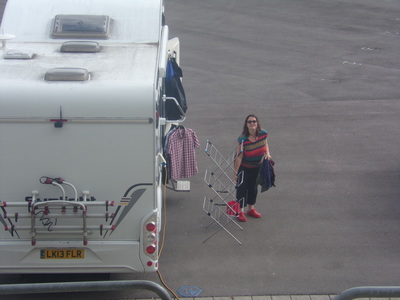
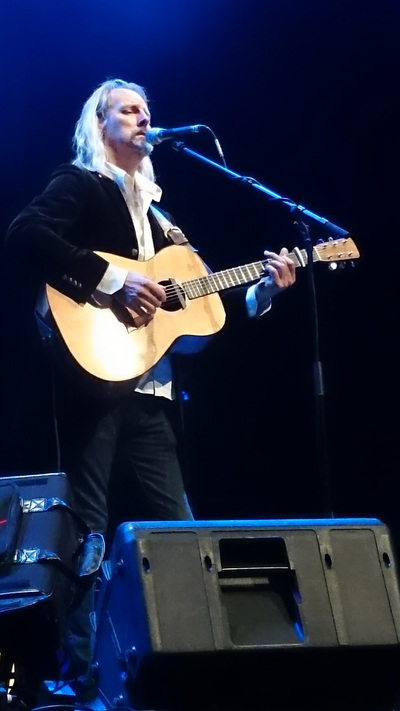
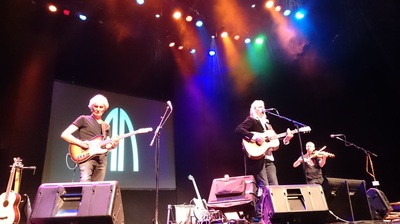

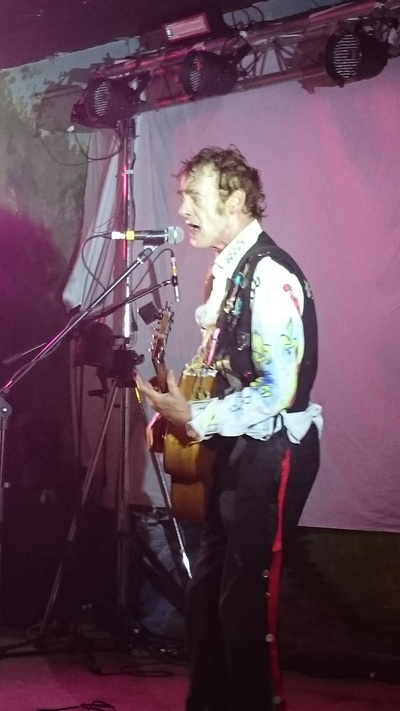
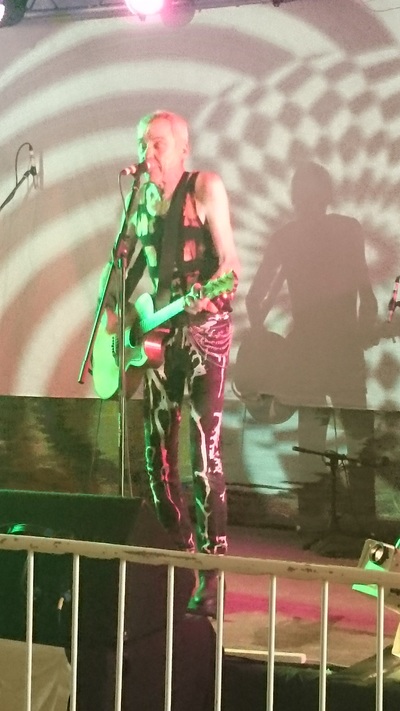
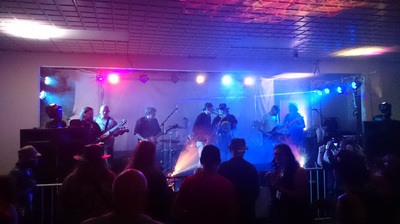

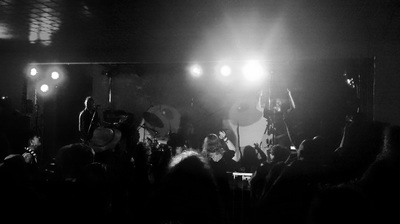
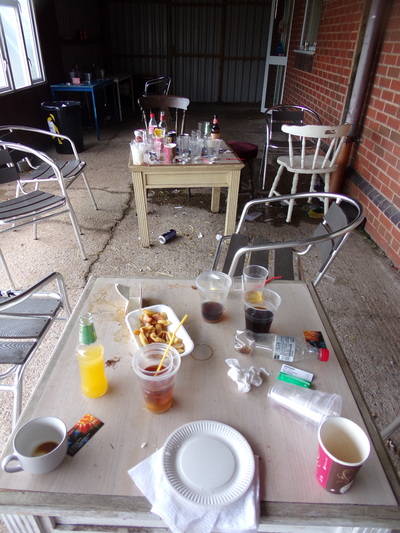
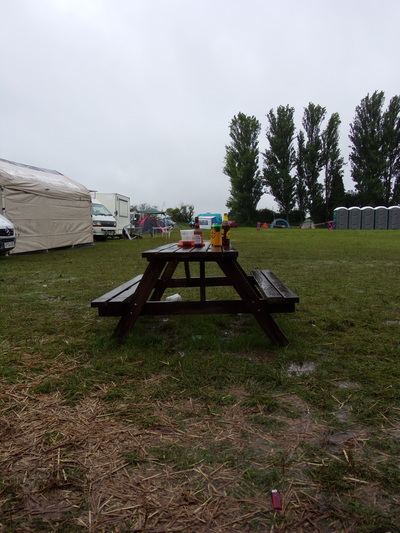
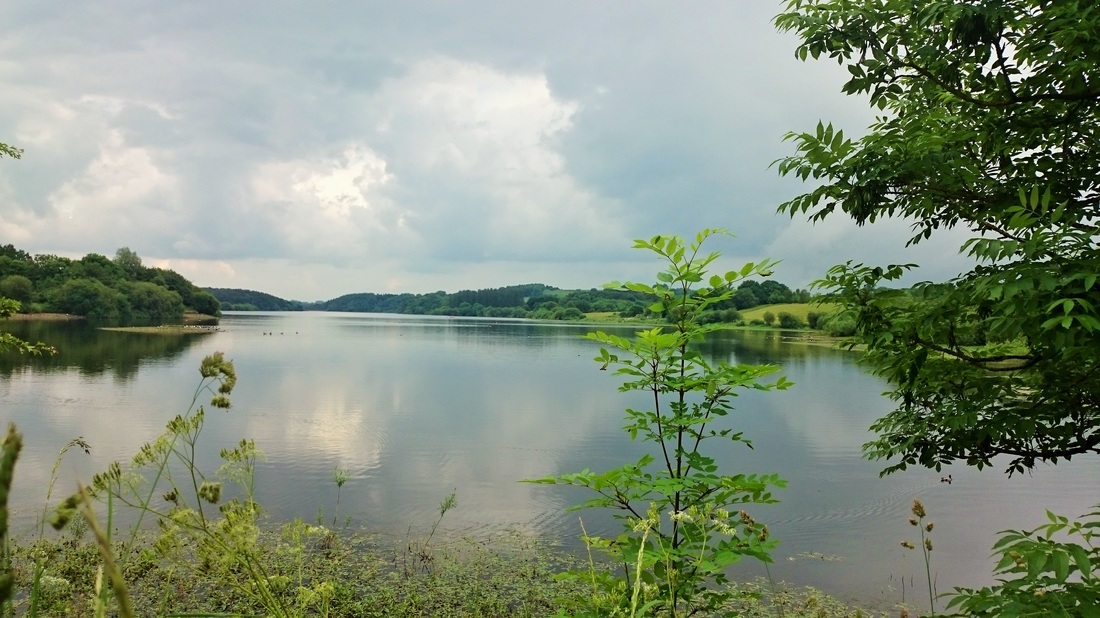
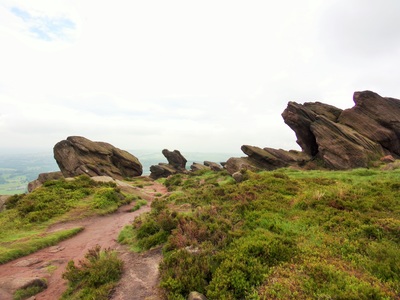
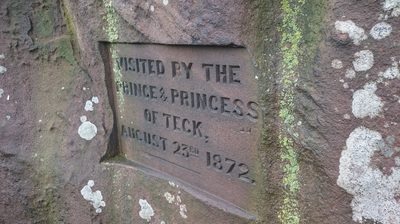
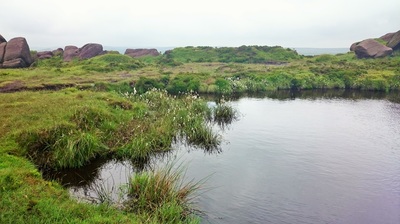
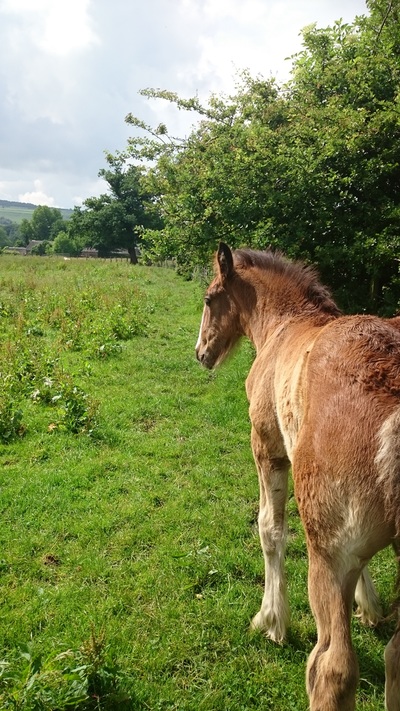
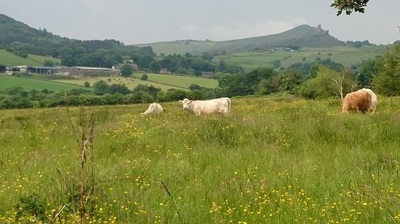
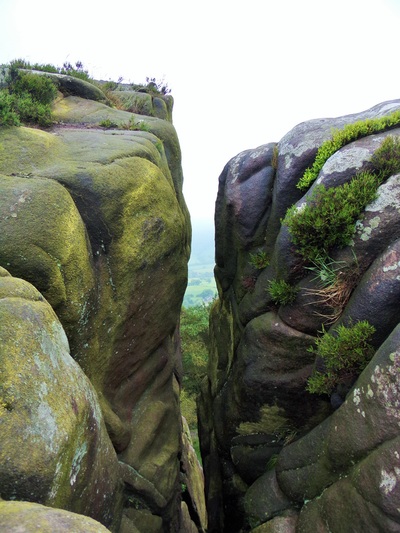
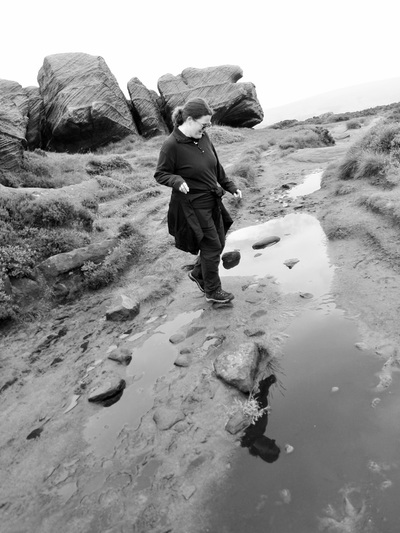
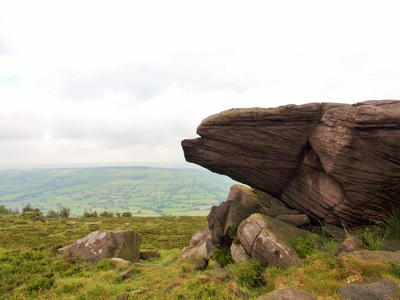
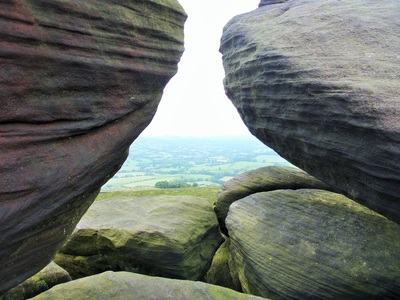
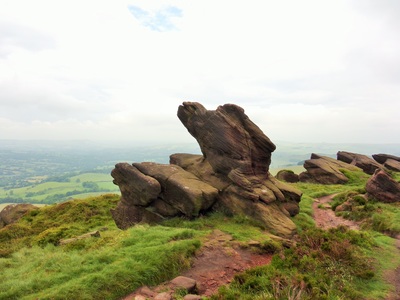
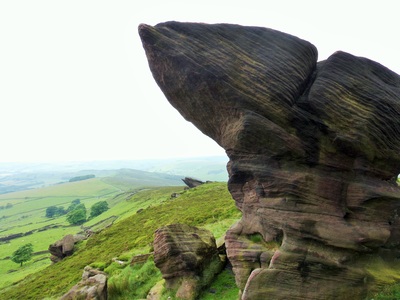
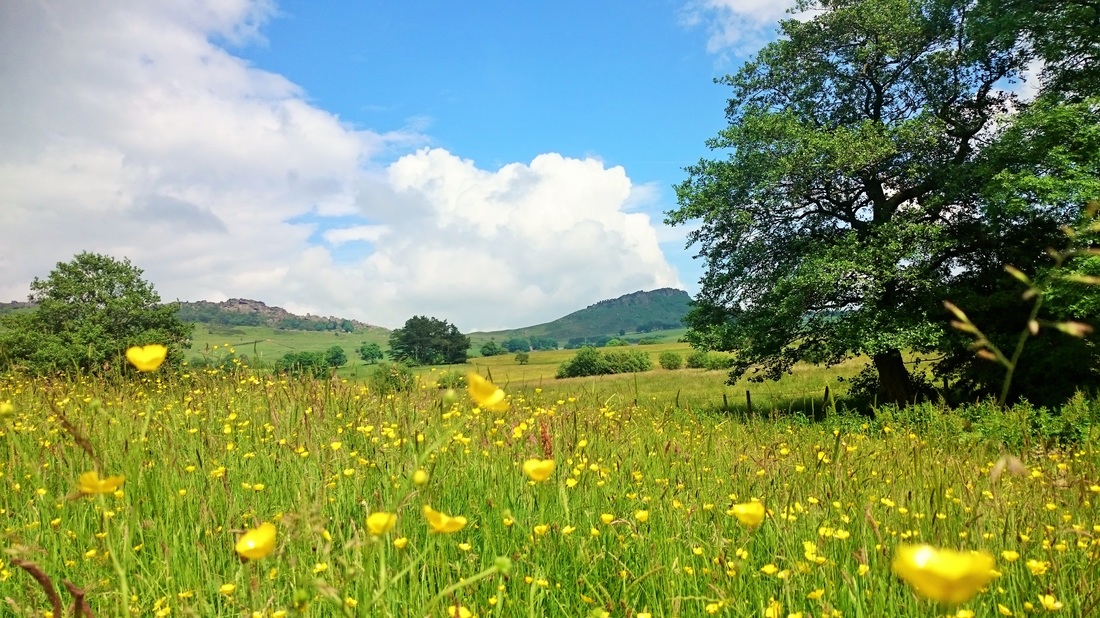
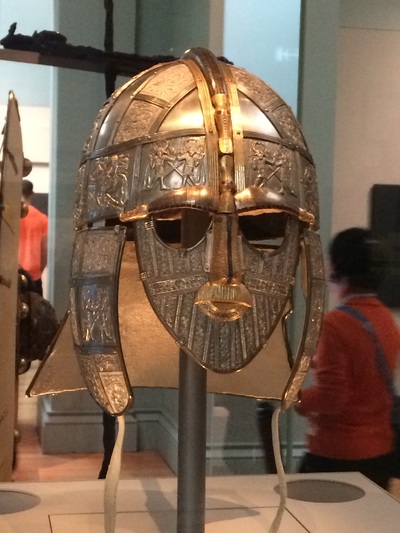
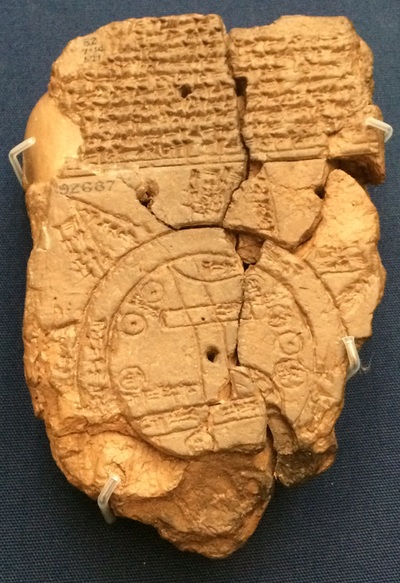
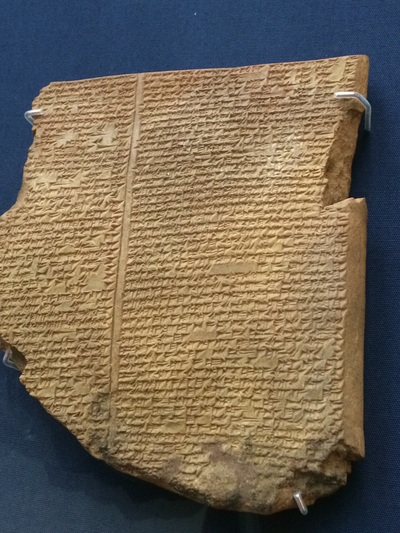
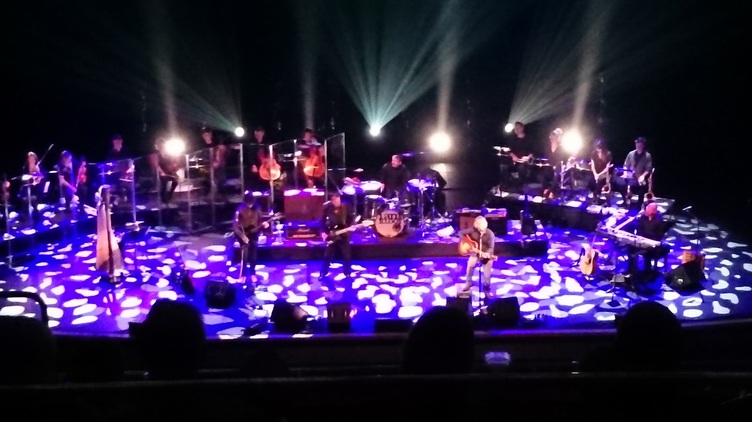
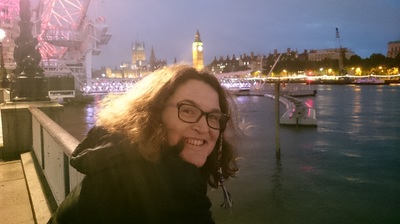
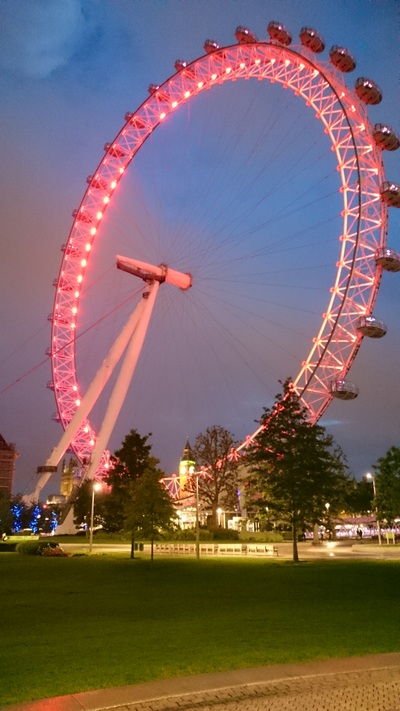
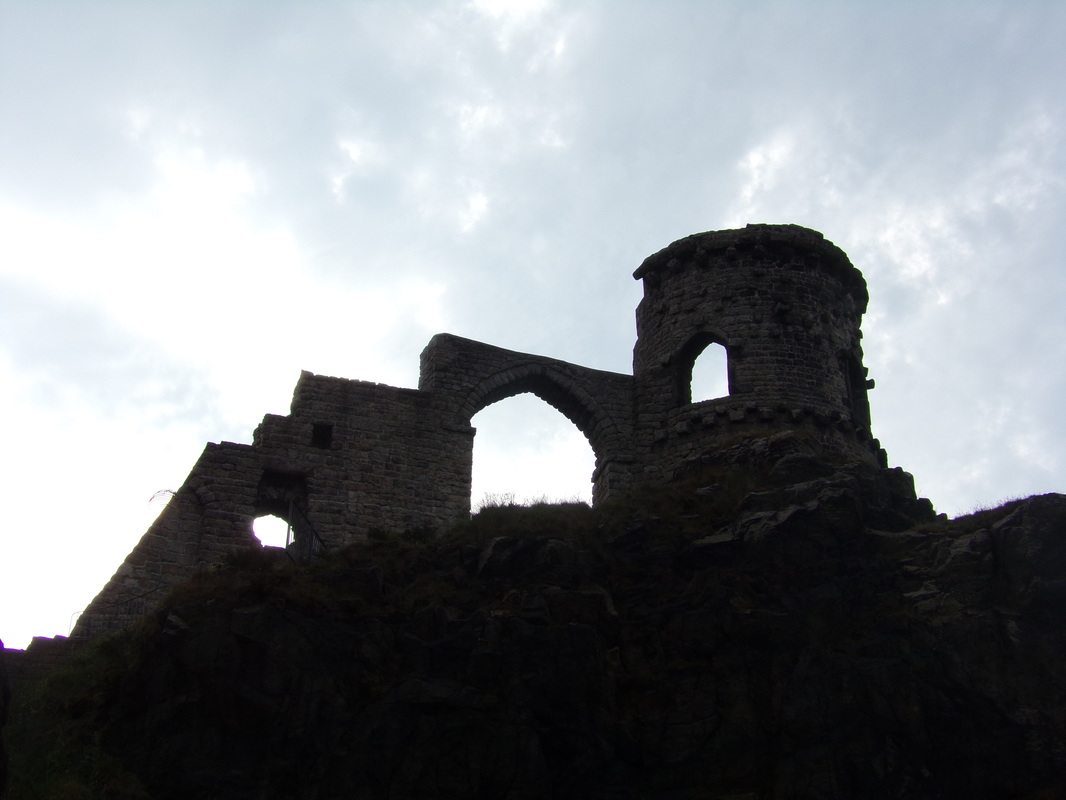
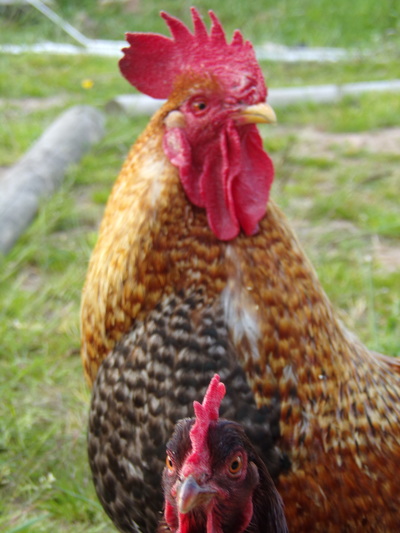
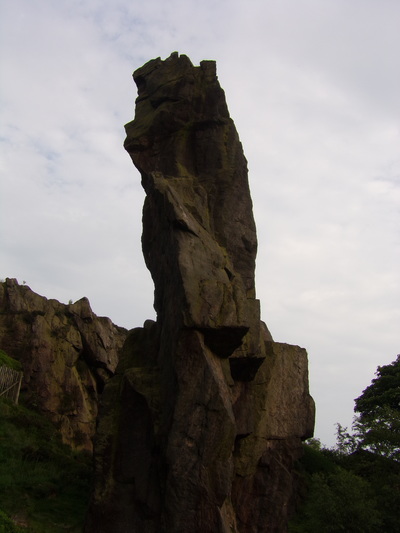
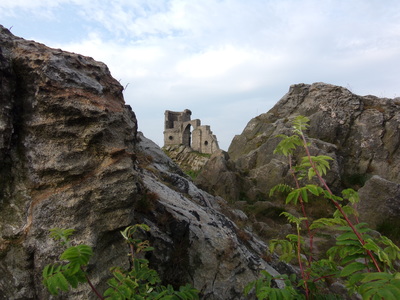
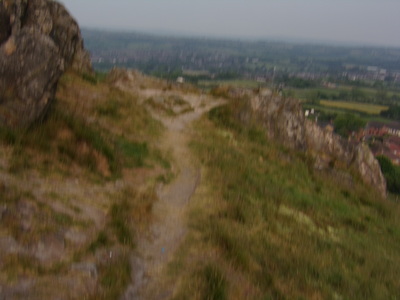
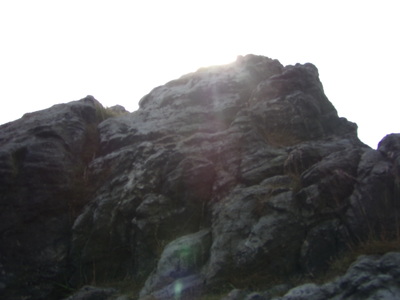
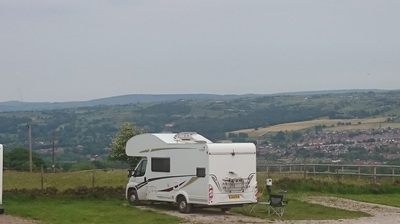
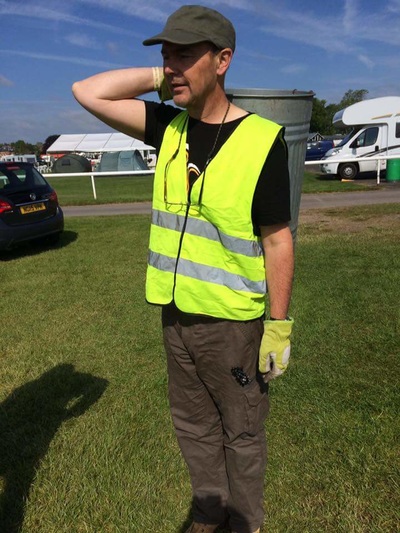
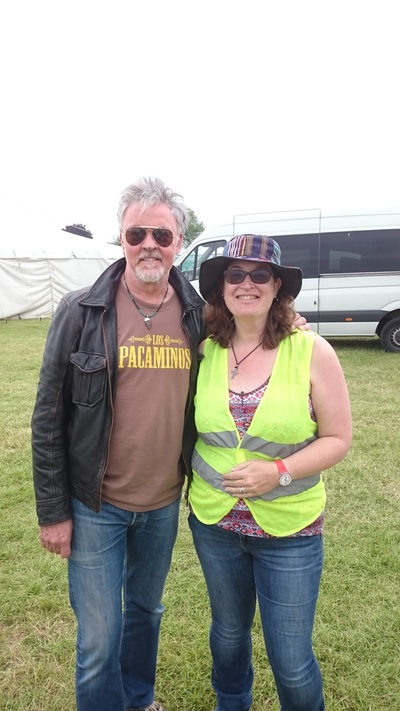
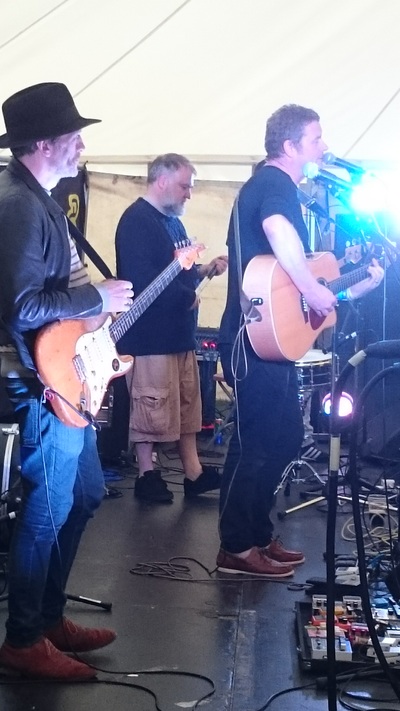
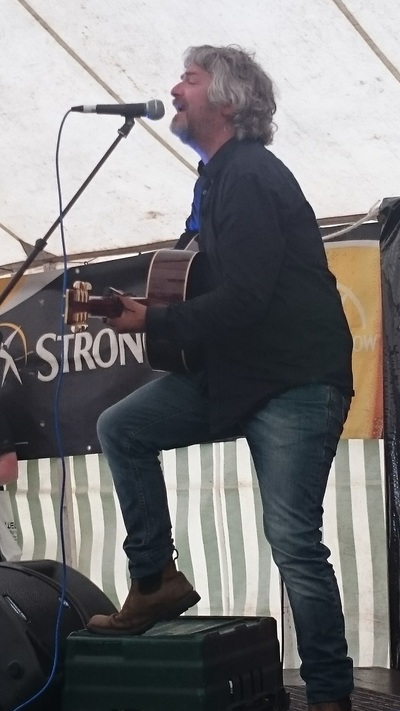
 RSS Feed
RSS Feed
